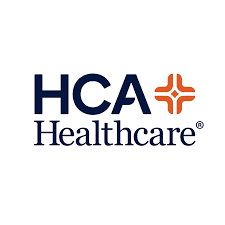
Editor's Note University of California San Francisco (UCSF) surgeons and researchers presented a wide range of original work at the American College of Surgeons’ 2025 Clinical Congress in Chicago, held October 4–7. According to an October 7 article published by UCSF, the meeting featured topics from perioperative opioid stewardship and…

Editor's Note The Food and Drug Administration (FDA) has announced three new recalls between October 14 and 16 that may affect OR inventory and perioperative workflows across multiple service lines. Each recall targets a commonly used product in surgical or imaging settings, prompting leaders to review supplies and coordinate with…

Editor's Note Cesarean delivery remains the most common major surgery in the US, but new evidence highlights its impact on recovery, pain, and sleep health for mothers. In an American Medical Association (AMA) interview published by HCA Healthcare Today on October 10 and new research presented at the ANESTHESIOLOGY® 2025…

Editor's Note A new study shows video-language models (VLMs) can accurately evaluate nursing skills and generate meaningful feedback, potentially transforming how future nurses are trained and assessed, Cornell University October 6 reports. The study describes the first framework to apply VLMs to automated nursing competency evaluation. According to the article,…

Editor's Note A new study shows hospitals can meaningfully reduce unnecessary preoperative testing for healthy patients undergoing low-risk surgeries without compromising safety or workflow, JAMA Network October 6 reports. The “Right-Sizing Testing Before Elective Surgery” (RITE-Size) strategy successfully lowered testing rates from 68.0% to 40.3% across three Michigan hospitals, while…

Editor's Note Artificial intelligence (AI) and evidence-based fasting practices could significantly enhance safety and comfort for children undergoing surgery, according to research presented at the ANESTHESIOLOGY® 2025 annual meeting that took place on October 10–14. One study found AI systems outperform standard methods in key pediatric anesthesia tasks, including selecting…

Editor's Note Sweeping layoffs at the Centers for Disease Control and Prevention (CDC) have gutted the agency’s ability to track overdoses, injuries, and violent deaths, Axios October 15 reports. The National Center for Injury Prevention and Control, once a cornerstone of public health surveillance, now operates with roughly one-third of…

Editor's Note States are sharpening their focus on outpatient facility fees, using new data and reporting mandates to expose how these charges inflate commercial healthcare spending, HealthAffairs October 6 reports. Specifically, Colorado, Maine, Connecticut, and Washington have launched varied but increasingly sophisticated efforts to monitor when and where hospitals bill…

Editor's Note Hospitals that provide surgical care are closing faster than new ones are opening, deepening inequities in access to surgery for socioeconomically disadvantaged communities, American College of Surgeons October 3 reports. Closures not only disrupt care, but also deter many from seeking surgery altogether. Increased travel burdens and difficulty…

Stress and burnout are more than workforce concerns; they are patient safety issues. Research shows a clear correlation between healthcare provider stress and medical errors. For instance, Zabin et al, a 2023 systematic review, confirmed that job stress negatively influences patient safety culture. Garcia & Abreu et al, a separate…